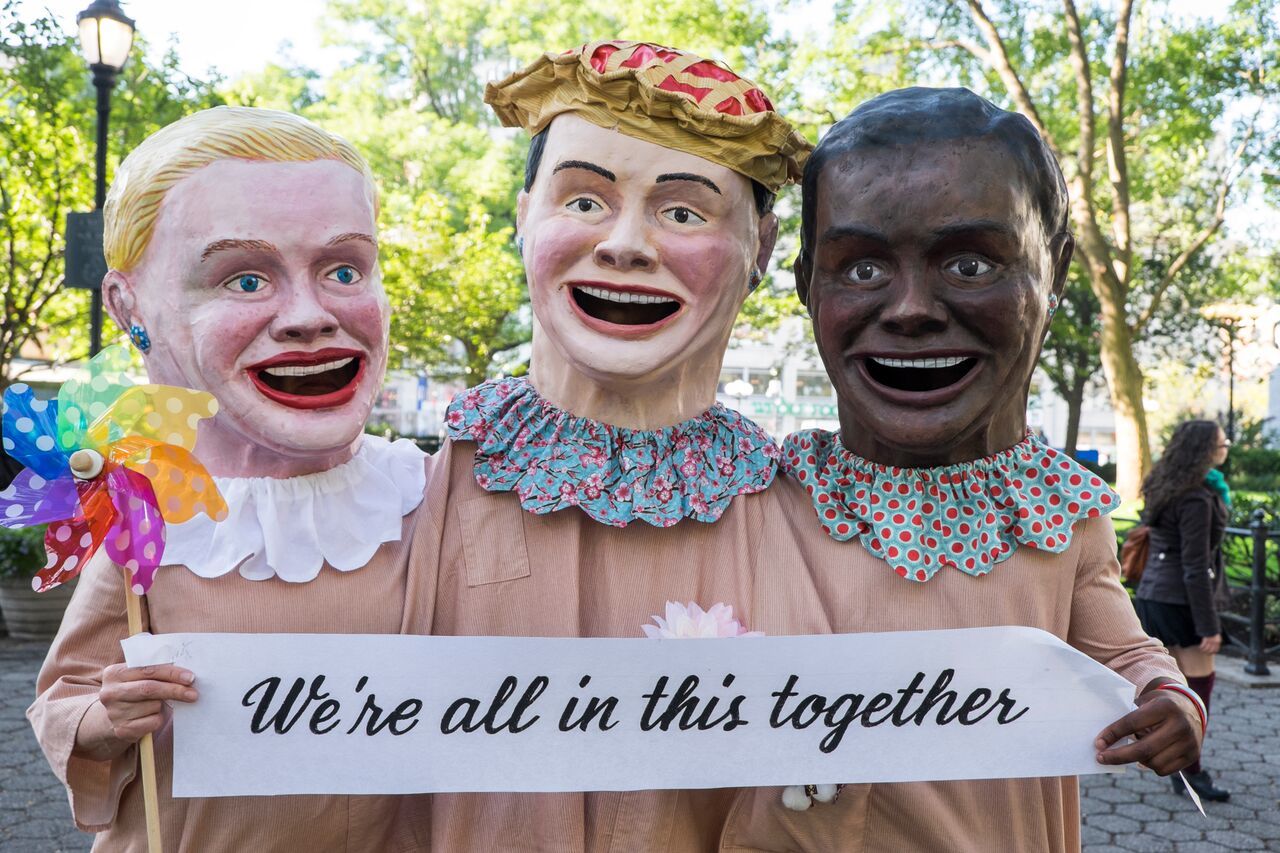Leslie Schultz
A View form Vista Drive
A short street. Three blocks long.
Houses like half-boxes of salt
plunked on either side. You sing
a song of sixpence. The sky
is grey. Dad pokes the key
into the lock. We don't ask why
we have come here. Next morning,
a moving van arrives, with all
our old things, shrouded, coming
under the lintel—just—not bumping
the still-strange walls. Spoons
go in the drawer, dolls are clumping
together in a closet corner
for now. Then beds are made,
lain on. The T.V., an anchor,
ignites in front of the fireplace.
On chill afternoons,
it becomes our safe place
to look. Or, sometimes a book
with pictures. We can't yet read.
One day, a cheery whir, mistook
for a lawn mower, sounds and stops
for hours. Outside, more showers.
Then the door to your room pops
open. Excitedly, you wave
us in, Karla and me.
We listen, do not misbehave,
follow you to the double
bed where your gifts are spread
over the surface. Such trouble
you have taken. Tiny stitches,
trims, hooks and eyes. Old scraps
of cloth dazzle and bewitch us,
new-made into doll clothes.
We seize on them with delight.
But this designs new woes.
Turning, I see your face. Something's awry.
Your gift has made you sad. And mad.
I want to cry. I turn away. I don't ask why.
Encased in Amber
Memory, like sticky pine sap, hardens
around an incident of darkest pain.
As time bombs buried long in mental gardens
can tick for many years but still refrain
from cascading into detonation,
one catches echoes of one's own raw voice—
those plosive words, that vicious intonation—
one would retract if given half a choice.
But words unspooled can never be rewound.
Anger doesn't care what it has ruined,
what delicate structure made unsound,
what lovely hope unstrung or song untuned.
Relics help us to remember what we've found:
those wounds within us shattered on the ground.
|
|
 |
 |
| AUTHOR BIO |
| Leslie Schultz (Northfield, Minnesota) is the author of two collections of poetry, Still
Life with Poppies: Elegies (Kelsay Books, 2016) and Cloud Song (Kelsay Books, 2018).
Her poetry has appeared most recently in Able Muse, Blue Unicorn Journal, Light,
Mezzo Cammin, Swamp Lily Review, Poetic Strokes Anthology, Third Wednesday, The
Madison Review, The Midwest Quarterly, The Orchards Poetry Journal, and The
Wayfarer; in the sidewalks of Northfield; and in a chapbook, Living Room (Midwestern
Writers’ Publishing House). She received a Pushcart Prize nomination in 2017 and has
twice had winning poems in the Maria W. Faust sonnet contest (2013, 2016). Schultz
posts poems, photographs, and essays on her website: www.winonamedia.net
|
|
| POETRY CONTRIBUTORS |
 Barbara Crooker Barbara Crooker
 Alexandra Donovan Alexandra Donovan
 Jehanne Dubrow Jehanne Dubrow
 Kathleen Goldbach Kathleen Goldbach
 Colleen S. Harris Colleen S. Harris
 Brittany Hill Brittany Hill
 Katherine Hoerth Katherine Hoerth
 Lynne Knight Lynne Knight
 Jean L. Kreiling Jean L. Kreiling
 Angie Macri Angie Macri
 Carolyn Martin Carolyn Martin
 Kathleen McClung (Featured Poet) Kathleen McClung (Featured Poet)
 Mary Mercier Mary Mercier
 Ann Michael Ann Michael
 Leslie Schultz Leslie Schultz
 Myrna Stone Myrna Stone
 Jean Syed Jean Syed
 Ann Christine Tabaka Ann Christine Tabaka
 Sally Thomas Sally Thomas
 Doris Watts Doris Watts
 Joyce Wilson Joyce Wilson
 Marly Youmans Marly Youmans
|
|
|
 |
|
 |
|
|
|
 |
| Megan Marlatt:Looking like large puppet heads, it was "anima", the root of "animation", that led me to the making of the big heads, (or "capgrossos" as they are called in Catalonia where I learned the craft.) Anima is the soul or what breathes life into a being and to animate an inanimate object, an artist must insert a little soul into it. However to bring attention to what is invisible, (the soul), I chose to mold its opposite in solid form: the persona, the ego, the big head, the mask. Nearly every culture across the globe has masks. They allow performers to climb into the skin of another being and witness the other's world from behind their eyes. While doing so, the mask erases all clues of the performer's age, gender, species or race. In this regard, I find them to be the most transformative and empathic of all human artifacts.
|
|
|
|
|
|
 |
|
 |
|
|
|
|
